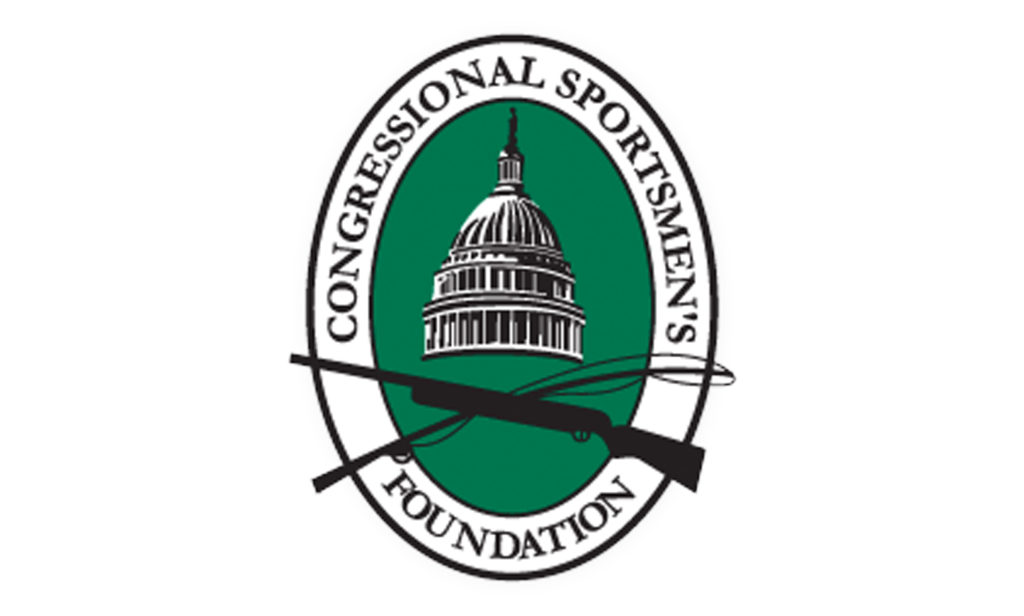Policy Corner Brief: September 2019

Sportsmen’s conservation policy issues from public lands access for recreation to forest management to sportsmen’s recruitment and retention – and much more. Bringing you need-to-know information from around the country.
NATIONAL ENVIRONMENTAL POLICY ACT
-
- The USDA Forest Service is revising its National Environmental Policy Act (NEPA) regulations. These regulations are a key component of how the agency performs environmental analysis and makes decisions. NEPA requires agencies to analyze the environmental effects of their proposed actions prior to making decisions. This process helps the Forest Service in its mission to sustain the health, diversity, and productivity of the America’s forests and grasslands to meet the needs of present and future generations. Recently in late August the Congressional Sportsmen’s Foundation, in addition to numerous other sportsmen’s organizations, submitted comments supportive of the U.S. Forest Service’s (USFS) proposed National Environmental Policy Act (NEPA) regulation changes. The revisions, including a new categorical exclusion for ecosystem restoration, would streamline analysis to enable the USFS to complete more forest health and wildlife habitat projects.
ALABAMA – LOCAL LEASH LAW EXEMPTION FOR HUNTING DOGS
AL S 102
-
- A local law requiring a dog to be kept on a leash or otherwise restrained does not apply to an agricultural work dog at any time while the dog is engaged in agricultural work or a hunting dog at any time while the dog is engaged in hunting wild game. This new law was enacted on June 7, 2019 and is effective on September 1, 2019.
LOUISIANA – HUNTER EDUCATION ELECTION OPTION IN PUBLIC HIGH SCHOOLS
LA HCR 65
-
- Urges and requests the Department of Wildlife and Fisheries to work with the Department of Education and the Louisiana School Boards Association to provide hunter education as a voluntary physical education elective in public high schools. This concurrent resolution passed the House of Representatives on May 7, 2019 and the Senate on June 1, 2019.
ILLINOIS – HUNTER APPRENTICE LICENCES
IL H 3623
-
- Removes the “one-time” stipulation for apprentice hunting licenses, allowing novice hunters the opportunity to take advantage of a mentor hunt multiple times until they feel comfortable taking the next step of hunter education certification and hunting on their own. This new law was enacted on August 23, 2019.
ILLINOIS – HUNTER SAFETY CURRICULUM
IL H 3462
-
- Amends the Illinois School Code to allow a school district to offer hunting safety as part of the curriculum during the school day or as part of an after school program, and allows the State Board of Education to prepare and make available resources on hunting safety that may be used to develop hunter safety courses. This new law was enacted on July 26, 2019.
NEW YORK – PRO AND ANTI PHEASANT LEGISLATION
NY S 6350 – Youth Pheasant Season
-
- This bill would extend the authority of the Department of Environmental Conservation to set open season and bag limits for pheasant hunting by youth (“junior” license holders) on Long Island. The bill was sent to the Governor on August 23, and now awaits his signature.
NY AB 600 – Ban on Pheasant Propagation
-
- Sponsored by a known animal rights legislator, this bill would prohibit the state from participating in pheasant propagation, removing the present authority to do so from the Department of Environmental Conservation ,and closing any state owned or operated pheasant production facility. The bill has not moved since introduction in January.
PENNSYLVANIA – PRO ACCESS AND OPPORTUNITY LEGISLATION
PA S 147 – Sunday Hunting
-
- Sponsored by Caucus Co-Chair Sen. Dan Laughlin, the amended version of this bill will allow for 3 days of Sunday hunting (one if deer archery season, one in deer firearms season, and one to be up to the discretion of the Pennsylvania Game Commission). Pennsylvania is presently one of the most restrictive states in the nation when it comes to hunting on Sundays, and only allows for nuisance species such as coyotes and crows. The bill has cleared the Senate and will be heard by the House Game and Fisheries Committee on September 10.
SOUTH CAROLINA – NEW TURKEY HUNTING REGULATIONS ESTABLISHED
SC S 575
-
- Enacted on June 5, the now law created regional hunting areas with the season for game zones 1 and 2 in the Upstate running from April 1 – May 10, and the season for game zones 3 and 4 in the Lowcountry running from March 22 – April 30.
- Additionally, the new regulations:
- reduce the daily bag limit from 2 to 1.
- reduce the season bag limit for non-residents from 3 to 2 (bag limit remains at 3 for residents).
- allow for the taking of only 1 male bird during the first 10 days of the season.
- require turkey tags, previously free, to be purchased by residents for $5, by nonresidents for $100, and no cost for persons under the age of sixteen, lifetime licensees, or gratis licensees holders. The funds generated from the sale of these tags will go to wild turkey research and management.
- require hunters to report the harvest via an electronic harvest reporting system
- Additionally, the new regulations:
- Enacted on June 5, the now law created regional hunting areas with the season for game zones 1 and 2 in the Upstate running from April 1 – May 10, and the season for game zones 3 and 4 in the Lowcountry running from March 22 – April 30.
For more information on these policy updates and more, visit congressionalsportsmen.org.
SHARE ON
You may also like
The role corn plays for gamebirds and economies ac...
Sportsmen’s conservation policy issues from publ...
Sportsmen’s conservation policy issues from publ...


























